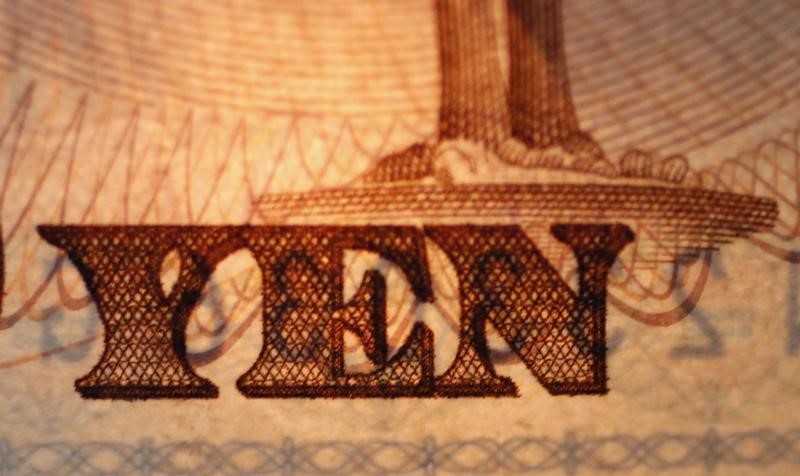Investing.com - The Japanese yen held slightly stronger in early Asia on Thursday with investors still focused on China and core machinery data ahead.
USD/JPY changed hands at 124.17, down 0.03%, while AUD/USD traded at 0.7382, up 0.05%.
In Japan come core machinery orders for June, with a drop of 5.6% expected month-on-month and a year-on-year pace of a gain of 16.4%. Australia releases MI inflation expectations, with the previous survey showing trimmed mean expectations at 3.4% year-on-year and and the weighted mean at 2.6%, and later in the day RBA Assistant Governor Guy Kent speaks.
The U.S. dollar index, which measures the greenback’s strength against a trade-weighted basket of six major currencies, rose 0.06% to 96.35.
Overnight, the dollar tumbled over 1% to one-month lows against the other major currencies on Wednesday, as markets were still digesting news that China devalued its currency for the second consecutive day.
The yuan dropped to a four-year low against the dollar after the People's Bank of China set the yuan's midpoint rate weaker than at Tuesday's closing.
China devalued its currency by 2% in a surprise move on Tuesday to make its exports more competitive and shore up growth in the flagging economy.
The PBOC has described the move as a “one-off depreciation”, based on a new way of managing the exchange rate that better reflected market forces.
On Wednesday, after Greece agreed on the framework of a multi-year €86 billion bailout, members of Parliament prepared to debate the provisions of the stimulus package during Thursday night's emergency session. While Greece prime minister was forced to accept key concessions on pension and spending cuts, as well as a reduction in early retirement benefits as part of the accord, the Greek Parliament is still expected to approve the deal. If ratified, the deal could be finalized in time for Greece to meet a €3.2 billion obligation to the European Central Bank on August 20.
Elsewhere, Federal Reserve of New York president William Dudley cautioned on Wednesday that the currency interventions by the People's Bank of China this week could have widespread ramifications on the global economy. Speaking at the Rochester Business Alliance in Western New York, Dudley indicated that the PBOC's 1.9% devaluation of the Yuan might have "huge implications," on economic growth worldwide while emphasizing it is still "very early to judge the full impact" of the monetary policy decision.
On Wednesday, the Chinese central bank lowered the value of the renminbi for the second straight day before propping up the currency late in the session when it fell to a four-year low against the dollar at 6.4460. The PBOC is hoping to make Chinese goods more attractive for foreign purchasers after exports nationwide plunged by 8.3% last month.
Separately, Dudley echoed the sentiments of several of his colleagues on the timing of the Fed's first interest rate hike since 2006. Although Dudley said Wednesday that the Federal Open Market Committee is moving closer to raising short-term rates he would not confirm whether it will occur during its two-day monetary policy meeting beginning on September 17.
